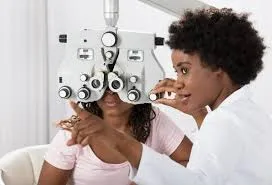The Role of an Ophthalmologist in Treating Common Vision Problems

Vision problems can significantly impact daily life, from reading and working to driving and enjoying leisure activities. An ophthalmologist plays a beneficial role in managing and addressing these issues. Understanding their expertise and how they assist in diagnosing and treating common vision problems can help those seeking clearer sight.
What Is an Ophthalmologist?
An ophthalmologist is a medical professional who specializes in eye care, including diagnosing and treating a wide range of vision problems and eye conditions. Unlike optometrists, who primarily focus on eye exams and prescribing glasses or contact lenses, ophthalmologists are trained to perform medical and surgical treatments. Their extensive training includes medical school, residency, and often additional subspecialty training focused on particular areas such as cataracts or glaucoma treatment. Ophthalmologists provide comprehensive eye care, including routine eye exams, treatment for complex eye diseases, and advanced surgical procedures.
What Are Common Vision Problems?
Vision problems range from mild issues corrected with prescription glasses to conditions requiring medical or surgical intervention. Common conditions include refractive errors such as nearsightedness, farsightedness, and astigmatism. These are often resolved with corrective lenses or refractive surgeries like LASIK.
Another notable category includes progressive diseases like cataracts and glaucoma. Cataracts cause clouding of the eye’s natural lens, leading to blurry vision. Glaucoma damages the optic nerve, often due to increased eye pressure, posing long-term risks to vision. These conditions may be more prevalent in older adults or those with specific risk factors, such as a family history of the disease.
What Are the Causes and Symptoms?
The causes of vision problems vary depending on the condition. Cataracts typically develop with age as proteins in the lens break down and clump together. Glaucoma frequently results from high intraocular pressure damaging the optic nerve.
Symptoms also differ between conditions. Cataracts may be accompanied by sensitivity to light and muted color perception. Glaucoma may have no noticeable symptoms in the early stages but can advance to peripheral vision loss. Early diagnosis is key, as some conditions, such as glaucoma, can lead to irreversible vision loss if left untreated.
How Do Ophthalmologists Treat Vision Problems?
Ophthalmologists use a combination of advanced diagnostic tools and treatments tailored to the individual. Some treatments are non-invasive, while others require surgical intervention. For glaucoma, minimally invasive glaucoma surgery (MIGS) may be recommended. MIGS techniques reduce intraocular pressure while allowing patients quicker recovery times compared to traditional surgeries.
Cataracts are commonly treated with cataract surgery. This is where the eye’s clouded lens is replaced with a clear artificial lens, significantly improving vision. Beyond these conditions, ophthalmologists might recommend management strategies for refractive errors or provide monitoring for systemic diseases that influence ocular health.
When Should You See a Specialist?
Any changes in vision, such as blurred sight, loss of peripheral vision, or persistent eye discomfort, warrant a visit to an ophthalmologist. Annual eye exams are beneficial, especially for those with a family history of eye diseases or underlying conditions like diabetes or hypertension. Early intervention often leads to better outcomes, preserving vision and overall quality of life. For more immediate concerns, such as sudden vision loss, severe eye pain, or visible changes in the eye, it is helpful to schedule an appointment promptly.
Seek Guidance Today
Ophthalmologists play a key role in diagnosing and treating common vision problems, including cataracts and glaucoma. With their specialized training and advanced treatment options, they provide both medical and surgical care tailored to individual needs. If you are experiencing any changes or challenges with your vision, consult an ophthalmologist. Seeking guidance early can help protect and maintain the clarity of your sight.





